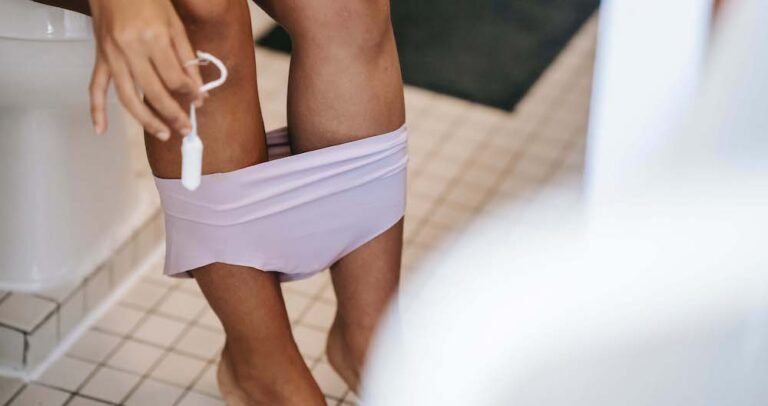This year marks the tenth anniversary of Menstrual Hygiene Day. To celebrate this huge milestone, we thought it was a good time to remind us why a #PeriodFriendlyWorld is so important to everyone…
Menstrual Hygiene Day 2024: What is it?
Imagine a time when millions of women around the world do not have access to adequate sanitary or period products. Or they are discriminated against because they have periods, the stigma and stress of which causes mental health problems for many.
Well, as it turns out, you don’t have to imagine that moment, because these things are happening right now. In 2024. In a city near you. Or maybe to you too. Whether due to the cost of living, conflict, social taboos, lack of education, or stereotypes about periods, for the millions of women and girls who take period products or just go about their lives, it can be nearly impossible.
This is not only incredibly stressful for the women and girls involved, but also means they are more likely to miss school or work, or stop going altogether. This means that people lose their talents, their work and their contribution to society. How does this affect everyone — who knows what we lost because women and girls couldn’t go to school or work?
And it’s this period injustice that Menstrual Hygiene Day was invented to fight because, together, we can create a period-friendly world by 2030.
This affects us all
Now, the name Menstrual Hygiene Day might suggest that we’re talking about cleanliness in some way, but we can assure you that’s definitely not the case. Yes, it is a terrible name, however, what it includes is everything mentioned above as well as some other extremely important things.
Let’s be clear, in this context, hygiene and health means period education, adequate hygiene and access to period products. But it also means the health of the economy, society and the world in general.
How does Menstrual Hygiene Day work?
Since 2014, MH Day has used media and social media campaigns to raise awareness and, most importantly, money to help women and girls everywhere who face period injustice. Funds generally come from partner companies, governments and charities and are earmarked for:
- Campaign to change negative social norms, taboos and stereotypes
- Support for period-friendly policy, including the abolition or reduction of taxes on period products
- Providing access to good quality period products
- Organization of menstrual education for students
- Ensuring that marginalized groups, including refugees and people with disabilities, have what they need for good menstrual hygiene and health
Starting with just 2,000 mentions on social media in 2014, by last year, Menstrual Hygiene Day had surpassed 200,000 posts. Globally, the message reached over 700 million people in 2023, up from 22 million in the first year. And all this thanks to people like you.
And that pressure works. Countries around the world are starting to wake up to this problem. For example, in 2023 Spain passed a law allowing women to take time off work for severe period pain, Brazil and Zimbabwe implemented period education in all schools, and girls in Australia, Zambia, New Zealand, France and Botswana have access to free seasonal products at school.
Why do they need my help?
Unfortunately, even after a decade of MH days, there are still 500 million women and girls living with period injustice. And that’s too much for the 21st century.
As we fast approach the 2030 deadline for a #PeriodFriendlyWorld, it’s up to all of us to help. Women, along with the rest of the world, depend on it. Because by improving this situation, we can improve access to water, sanitation, education and the lives of millions of people worldwide.
What can I do;
Most importantly, make your voice heard! Post on social using #PeriodFriendlyWorld and let everyone know what’s going on – there are loads of resources including frames and stickers available for free on the official Menstrual Health Day website. Become a member Ambassador Network use your influence for a great cause and continue the conversation as often as possible, not just today.
Wear your period bracelet – either in real life or digitally – to show your support. You can even make your own – 28 beads, with 5 red to symbolize the menstrual cycle. All details are on the website.
You can also contact period product companies, political representatives, charities and anyone else you can think of to let them know how important this issue is to you and women everywhere. And remind them that we’re not just talking about throwing tampons and pads at him. Money is also needed for infrastructure, education, training and everything else necessary for women and girls to thrive.
And in the near future, you could donate period produce to your local charity or food bank and make someone’s life 1,000% easier this month.
Period Hygiene Day: TLDR
There are still too many women and girls in the world who live with period injustice. Whether this is due to lack of access to seasonal produce, inadequate water infrastructure, poor hygiene or stigma, it’s time to change that.
MH day was designed to fight this battle and lead us to a #PeriodFriendlyWorld by 2030. We are only six years away, with a long way to go. However, we are making progress and with your help, we can get even more governments, charities and companies on board.
Get the word out using #PeriodFriendlyWorld on social media, download and use the images and resources available on the official MH day website and get as many people as you can. Having our voices heard makes a difference. So let’s shout really loud for the tenth anniversary!
